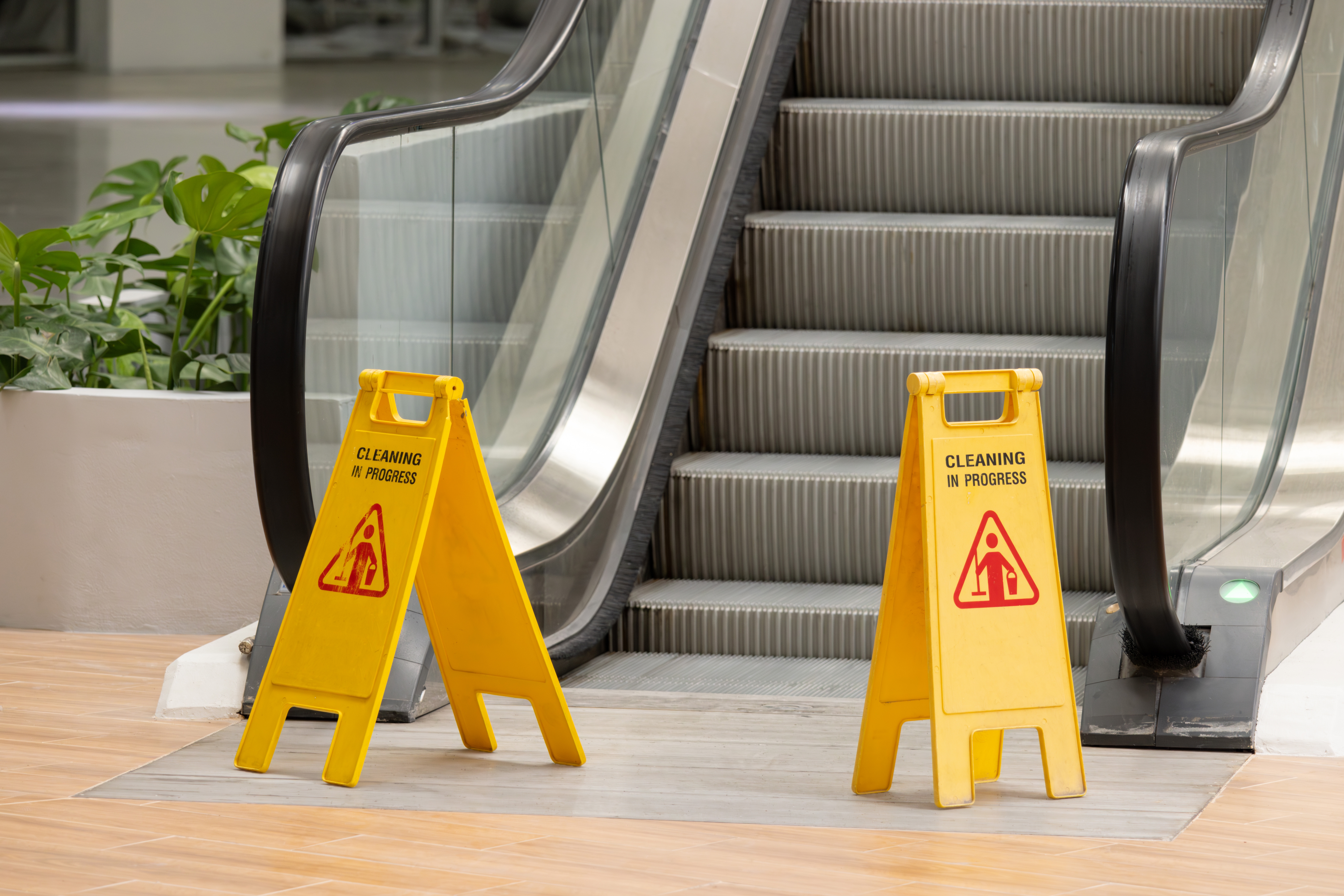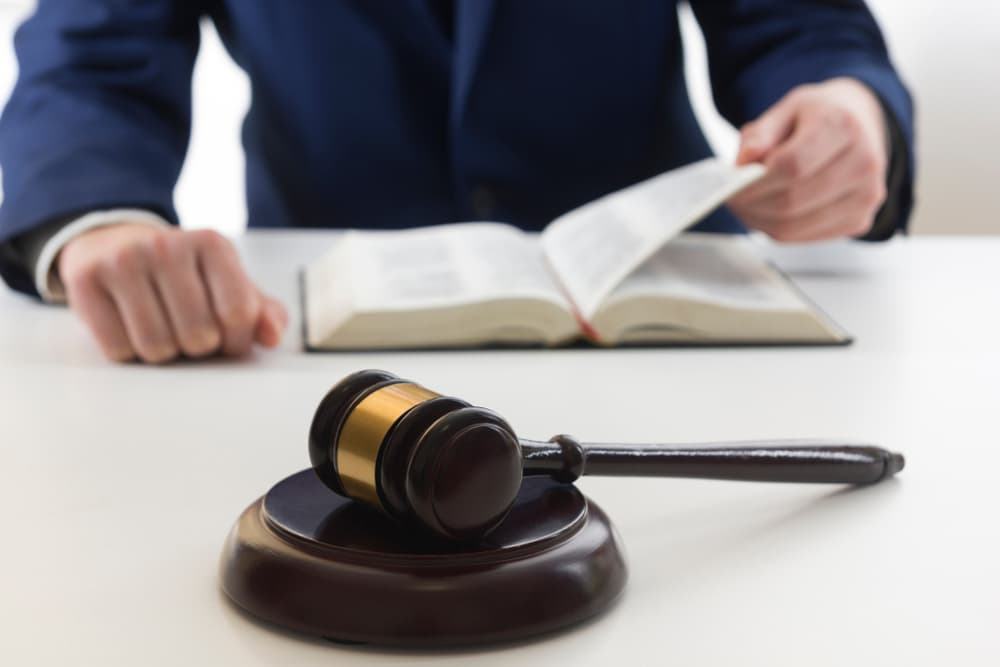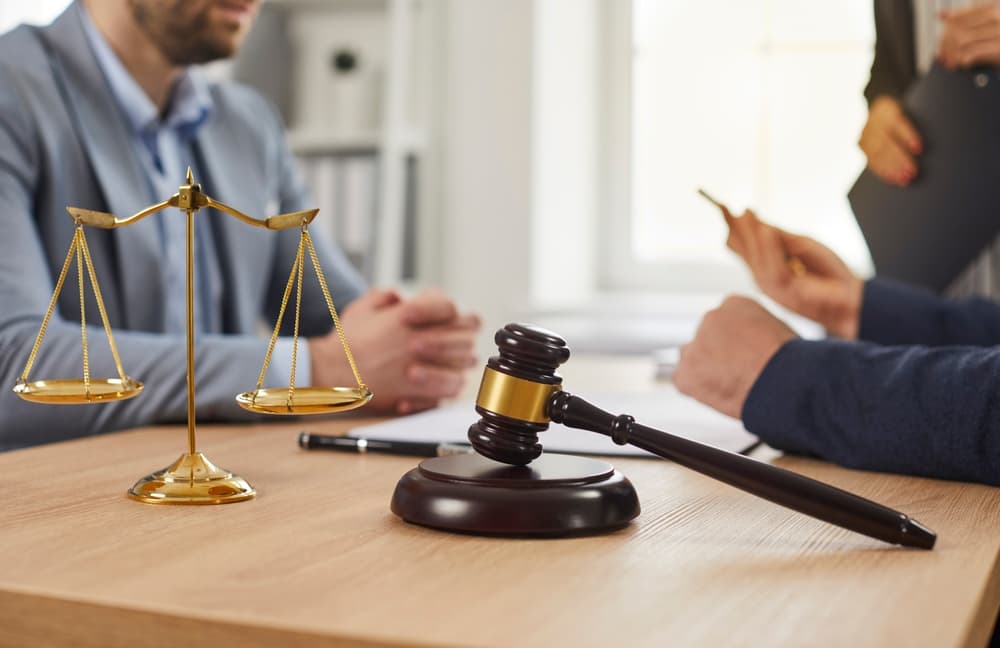- July 8, 2025
A slip and fall can cause serious injuries, from broken bones and head trauma to chronic back problems. When this happens, people often feel embarrassed or blame themselves.
But many times, the fall was not your fault. It was caused by a dangerous condition that a property owner should have fixed. When this happens, you may have a legal claim. Knowing how slip and fall cases are evaluated by Michigan courts to see if you are entitled to compensation is helpful.
The Foundation: Premises Liability and Visitor Status

In Michigan, slip-and-fall cases fall under premises liability. This legal concept holds that property owners are responsible for maintaining their property in a reasonably safe condition for visitors.
This does not mean a property owner must guarantee that no one will ever get hurt. It means they must take reasonable steps to prevent foreseeable harm. The level of that responsibility, or "duty of care," depends on the visitor's status at the time of the injury.
Michigan law categorizes visitors into invitees, licensees, and trespassers. The category you fall into is the first thing a court will determine, because it sets the standard for the property owner's legal duty to you.
Most slip and fall cases that happen at businesses involve invitees, who are owed the highest duty of care. Understanding your status is the first step in evaluating your case.
Invitee
An invitee is someone invited onto a property for a commercial purpose that benefits the owner. This is the most common status in slip and fall cases. If you are a customer in a store, a client in an office, or a patron at a restaurant, you are an invitee.
Property owners owe invitees the highest duty of care. They must not only warn you of known dangers but also actively inspect their property to discover any hidden dangers and fix them.
Licensee
A licensee is a social guest. This is someone who is on the property for their own purposes with the owner’s permission, but not for a business reason. Examples include a friend you invite over for dinner or a family member visiting your home.
The duty owed to a licensee is lower than to an invitee. The property owner must warn a licensee of any known dangers but does not have a duty to inspect the property for hidden hazards.
Trespasser
A trespasser is someone who enters a property without any permission. Generally, a property owner owes no duty to a trespasser other than to refrain from willfully and wantonly injuring them. There are some exceptions, especially when the trespassers are known to be children.
The Four Elements of a Negligence Claim
Just because you fall and get hurt on someone else’s property does not automatically mean you have a successful case. To win a premises liability claim in Michigan, you must prove that the property owner was negligent.
To prove negligence, your case must satisfy four specific legal elements. You must successfully prove every one of these four points to be awarded compensation.
The court will look at the facts of your case to see if they fit into this framework.
Your attorney’s job is to gather the evidence to establish each element. For example, security camera footage might show that a spill was on a supermarket floor for hours without being cleaned up, helping to prove that the store breached its duty of care.
Witness statements can help connect that breach directly to your fall and injuries. Here are the four elements you must prove:
- Duty: You must first show that the property owner owed you a legal duty of care. As discussed above, this is determined by your status as an invitee, licensee, or trespasser. For a customer in a store, the duty is to keep the premises reasonably safe.
- Breach: Next, you must prove that the property owner breached, or failed to meet, that duty. This means they did something wrong or failed to do something they should have done. Examples include failing to clean up a spill, failing to salt an icy sidewalk, or having poor lighting in a stairwell.
- Causation: You must then prove that the property owner’s breach of duty was the direct cause of your fall and your injuries. The hazardous condition must be the reason you fell. If you tripped over your feet in an area with a spill, you may have trouble proving causation.
- Damages: Finally, you must prove that you suffered actual harm, or "damages," due to the fall. This includes things like medical bills, lost wages from being unable to work, and your physical pain and suffering.
Overcoming the "Open and Obvious" Defense

One of the biggest challenges in Michigan slip and fall cases is the legal doctrine of "open and obvious." This rule states that a property owner has no duty to protect a person from a danger so open and obvious that an average person of reasonable intelligence would be expected to discover it upon casual inspection and avoid it.
In short, if you should have seen the hazard, the property owner is generally not held responsible if you get hurt. Insurance companies use this defense very often to try to deny claims.
They might argue that a patch of ice is open and obvious on a winter day in Michigan, or that a puddle of water is easy to see on a white tile floor. However, this rule is not absolute.
There are important exceptions. Even if a hazard is considered open and obvious, a property owner might still be liable if certain conditions are met. A court will look closely at the specific circumstances of the hazard.
Here are the main exceptions to the open and obvious rule:
- Effectively Unavoidable: A hazard may be open and obvious, but if it is "effectively unavoidable," the property owner may still be liable. The best example is a sheet of ice covering the only entrance or exit to a commercial building.
A person has to cross the ice to enter or leave, so the danger, while obvious, cannot be avoided.
- Special Aspects: A condition may also have "special aspects" that make it unreasonably dangerous, even if it is visible. The classic example is an open pit in a walkway.
While the pit is obvious, the risk of falling in and suffering a severe injury is so high that the property owner must fix it or guard against it.
- Unique Characteristics: The danger could present a substantial risk of death or severe injury. Think of an unguarded 30-foot hole in the middle of a parking lot.
It is open and obvious, but its unique character makes it unreasonably dangerous.
Evidence Needed to Support Your Claim
A strong premises liability case is built on strong evidence. The more evidence you can gather to support your claim, the better your chances of success. Collecting proof as soon as possible after a fall is pivotal because conditions can change quickly.
A spill gets cleaned up, ice melts, and a broken handrail gets repaired. Preserving a record of the scene as it was when you fell is very helpful. Your attorney will work to gather all available evidence to build your case.
This includes formal legal requests for documents and videos from the property owner. It also includes tracking down witnesses and getting detailed accounts of what they saw.
The goal is to piece together a clear story, supported by facts, that shows the property owner was at fault and that your injuries directly result from that fault.
- Photos and Videos of the Scene: The best evidence is a clear photo or video of the hazard that caused you to fall. If you can, use your phone to take pictures of the spill, the patch of ice, the broken step, or the poor lighting from many different angles.
- Incident Reports and Witness Information: If you fall in a business, report it to a manager immediately and make sure they create an official incident report. Get a copy of it. Also, get the names and phone numbers of any employees or other customers who saw you fall.
- Physical Evidence and Medical Records: Keep the shoes and clothing you were wearing at the time of the fall. Do not wash them. They may be useful evidence. Most importantly, immediately seek medical attention and follow your doctor’s instructions. Your medical records will create an official link between your fall and your injuries.
How Your Actions Can Affect Your Case

In some cases, the defense may argue that you were partially at fault for your own injuries. In Michigan, this is handled through a rule called "modified comparative negligence."
This rule allows a jury to assign a percentage of fault to both the plaintiff (the injured person) and the defendant (the property owner). How this fault is divided can have a big effect on your case.
If you are found to be partially at fault, your total compensation will be reduced by your percentage of fault. For example, if a jury decides your total damages are $100,000 but finds that you were 20% at fault for the accident (perhaps because you were looking at your phone while walking), your award would be reduced by 20%, to $80,000.
There is a fundamental limit to this rule. If the jury finds you were 51% or more at fault for the accident, your right to collect non-economic damages (like pain and suffering) is eliminated. You could only recover some of your economic damages, like medical bills.
The following actions could lead a jury to assign some percentage of fault to you:
- Being in a part of the property where visitors are not allowed.
- Failing to notice clear warning signs, such as a "Wet Floor" sign.
- Not paying attention to where you were walking or running instead of walking.
- Wearing footwear that was not appropriate for the situation, like high heels on an icy sidewalk.
Take the First Step Toward Justice
Proving a slip and fall case in Michigan requires a careful and detailed approach. It involves showing that a property owner had a duty to keep you safe, failed in that duty, and caused your injuries.
It also involves overcoming powerful legal defenses like the open and obvious doctrine. You do not have to face this complicated process alone.
An injury can leave you feeling lost and worried about the future.
Our slip and fall lawyers at Goodman Acker P.C. are here to provide clear guidance and compassionate support. We treat our clients like family, and we are dedicated to helping you get the resources you need to recover. For a free and confidential conversation about your fall, please call us at (248) 831-1507.

